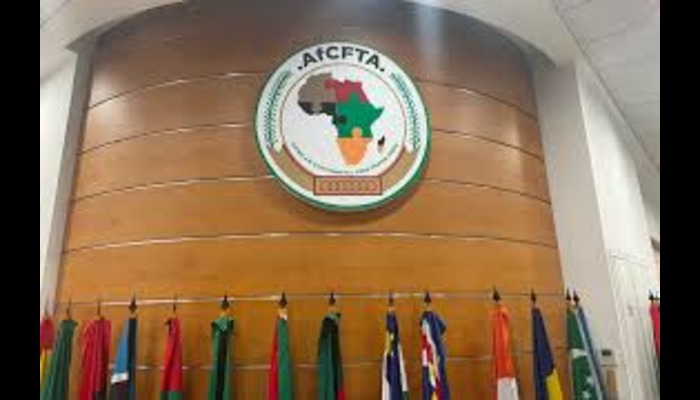Nigeria’s Banks and Telcos Drive Africa’s Growth Surge Under AfCFTA

Nigeria’s publicly traded banks and telecommunications companies are positioning themselves as key players in tapping into Africa’s expansive $1.9 trillion market under the African Continental Free Trade Area (AfCFTA). Their regional growth strategies offer valuable insights into how expanding across borders can enhance revenue streams and build market resilience.
Although Nigeria represents over 18 percent of Africa’s population and boasts a GDP of $246 billion in 2024, many Nigerian listed companies have traditionally concentrated on their home market. Intra-African trade remains limited, constituting only 14.4 percent of the continent’s total trade-significantly lower than Europe’s 65 percent and Asia’s 58 percent. Moreover, just 11 percent of cross-border investments originate from within Africa, as noted by Olaniyi Yusuf, chairman of the Nigerian Economic Summit Group (NESG).
“Africa, despite housing 17 percent of the global population and some of the fastest-growing economies, accounts for a mere 3 percent of worldwide trade,” Yusuf remarked, underscoring the structural challenges and vast potential for companies that pursue continent-wide expansion.
Nigerian banks have been at the forefront of exploiting these regional prospects. United Bank for Africa (UBA) operates in over 20 African nations, including Ghana, Kenya, and South Africa. Similarly, Access Bank maintains subsidiaries across 20 countries such as Angola, Kenya, and Zambia.
Guaranty Trust Holding Company (GTCO) has established operations in Côte d’Ivoire, Kenya, and Sierra Leone, while Zenith Bank and First Bank of Nigeria also maintain a presence in multiple African markets. These cross-border ventures not only diversify income sources but also bolster foreign currency reserves, a crucial advantage amid the naira’s volatility.
Telecom operators are equally capitalizing on the continent’s regional integration. MTN Nigeria, part of the broader MTN Group, has a strong footprint across several African countries. Airtel Africa, active in 14 nations including Kenya, Uganda, and Zambia, has expanded mobile and digital payment services in underserved markets by leveraging its pan-African reach. Additionally, Globacom and T2 Mobile (formerly 9mobile) are pursuing regional growth, reflecting a growing trend among Nigerian telecom firms to extend beyond domestic confines.
Challenges persist, however. Non-tariff barriers, inconsistent regulations, and inefficient logistics inflate intra-African trade costs by over 30 percent, according to the United Nations Economic Commission for Africa (UNECA). Labour mobility remains restricted, and tax policies differ widely across countries. Yusuf emphasized that “regional resilience is the new currency of competitiveness,” urging Nigerian companies to strategically overcome these obstacles to fully harness continental opportunities.
Highlighting Nigeria’s pivotal role, Yusuf stated, “Nigeria carries both the responsibility and the opportunity to spearhead regional integration, stimulate corporate expansion, and influence geopolitical dynamics.”
He described NESG’s “Rising Together” initiative as a practical framework for fostering cross-border cooperation: “Rising Together is more than a slogan-it’s a call to accelerate collaborative efforts. Current discussions must focus on how African businesses and governments can break down barriers related to labor, language, and regulation, creating an enabling environment for sustainable growth.”
For investors, the regional expansion strategies of banks and telecom companies present compelling prospects. The World Bank projects that full AfCFTA implementation could lift 30 million Africans out of poverty and add $450 billion to the continent’s GDP by 2035. Early movers that scale operations across Africa stand to capture new markets, enhance revenue stability, and gain first-mover advantages in rapidly developing economies.
Demographic trends further amplify this potential. By 2030, Africa will account for approximately 20 percent of the global population, and by 2050, it will possess the world’s largest workforce. Nigerian banks and telecoms that tap into this growing consumer base and labor pool are poised for significant revenue growth and heightened investor interest.
Ultimately, the expansion of Nigeria’s banking and telecommunications sectors exemplifies the synergy between corporate strategy and regional integration. For investors and analysts alike, these industries serve as indicators of Nigeria’s broader role in unlocking the vast opportunities within Africa’s $1.9 trillion market.








Leave a Reply